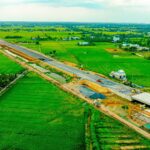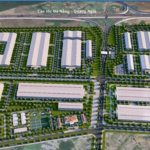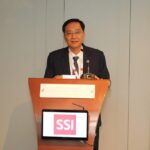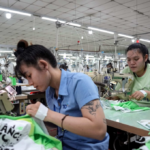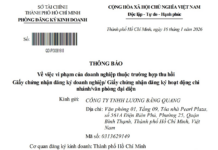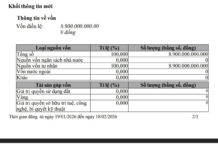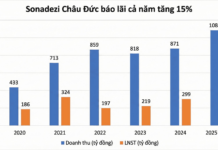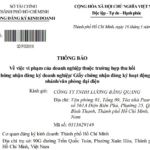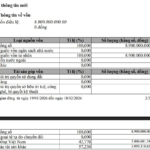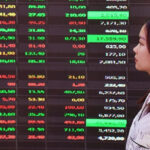The recent disruptions have exposed the limitations of a linear growth model reliant on resource extraction, production, consumption, and disposal. As a result, sustainable development is no longer seen merely as a corporate social responsibility but as a strategic imperative: Can this approach drive long-term growth and create tangible value for society and the economy?
For over a decade, Unilever, a pioneer in the fast-moving consumer goods (FMCG) industry, has affirmed that sustainability is at the heart of its global strategy and the key to long-term success.
In 2024, Unilever unveiled its Climate Transition Action Plan, reinforcing its commitment to integrating sustainability into its business performance. This plan ushers in the “third era” of the company’s sustainability journey: from raising awareness to integrating into the value chain, and now accelerating action for greater impact.
Unilever’s global orientation is not detached from local realities but is “localized” to align with the development goals of each country. In Vietnam, this spirit has guided all aspects of the company’s operations, from product strategies and supply chains to community initiatives.
This direction has been steadfastly pursued by Unilever Vietnam throughout its 30-year journey alongside the country’s development and, especially, over the past 14 years of strategic and comprehensive sustainability efforts in the S-shaped nation – the shared home of over 100 million Vietnamese.
Accompanying National Goals
Since its establishment in Vietnam in 1995, Unilever has witnessed and accompanied the country’s significant transformations. From industrialization and modernization to green growth and international integration, Unilever has always been in step with Vietnam’s strategic orientations.
As Vietnam embarks on a new era of deep integration and green growth, it sets breakthrough goals, including the Net-Zero target by 2050, as pledged at COP26. Achieving this goal demands action not only from the government but also from businesses, social organizations, and the entire population.
Unilever Vietnam has been an active and proactive partner in this journey. The Net-Zero journey is not merely about reducing emissions but also about reshaping the entire business strategy, with environmental and social responsibilities at its core. According to Ms. Le Thi Hong Nhi, Vice President of Communications, External Affairs, and Sustainability at Unilever Vietnam, Vietnam’s Net-Zero commitment by 2050 has spurred Unilever and its entire value chain into action.
“Unilever has always been a pioneer in sustainability, aligning with national goals. We understand that this journey is not without challenges, so we have taken numerous actions to drive broader systemic change by collaborating with businesses in our value chain, government agencies, policymakers, consumers, customers, and other stakeholders to accelerate the transition,” said the representative from Unilever at the Vietnam Corporate Sustainability Forum (VCSF) held in Hanoi.
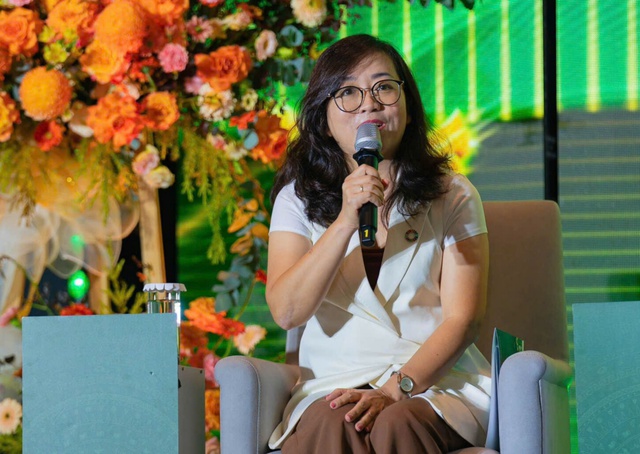
Ms. Le Thi Hong Nhi, Vice President of Communications, External Affairs, and Sustainability at Unilever Vietnam, speaking at the Vietnam Corporate Sustainability Forum (VCSF) in Hanoi.
Net Zero as a Catalyst for Innovation Across the Value Chain
Globally, Unilever aims to achieve Net-Zero across its entire value chain by 2039. In Vietnam, as a pioneer in achieving Net-Zero in internal operations (Scopes 1 & 2) since 2022, Unilever has eliminated all emissions from direct operations and transitioned to renewable energy.
While many businesses are still grappling with Scope 1 emissions, Unilever Vietnam has gone further, not only achieving internal Net-Zero but also leading its ecosystem in the transition. According to a McKinsey report, as of 2022, approximately 90% of Unilever Vietnam’s emissions originate from its supply chain, necessitating a strategy to extend the green transition to its suppliers (Scope 3) to mitigate climate impacts. Therefore, Unilever Vietnam focuses on greening its entire supply chain, from encouraging suppliers to commit to emission reductions and adopt renewable energy and sustainable production processes to optimizing transportation to reduce emissions in logistics and distribution.
At the Bac Ninh factory, Unilever collaborated with its packaging supplier, Dynaplast Vietnam, on the “Steam Supply from Biomass Boiler” project. Through this project, the Unilever Bac Ninh factory provides steam from its biomass boiler to Dynaplast, enabling Dynaplast to eliminate the use of oil in its boiler and achieve Net-Zero in Scope 1. Additionally, in the “Hole in the Wall” project, a direct pipe system transfers packaging bottles from the Dynaplast factory to Unilever, reducing 4 tons of CO₂ annually, eliminating approximately 3,000 truck trips, and cutting down 120,000 cardboard boxes, achieving zero waste at the factory.
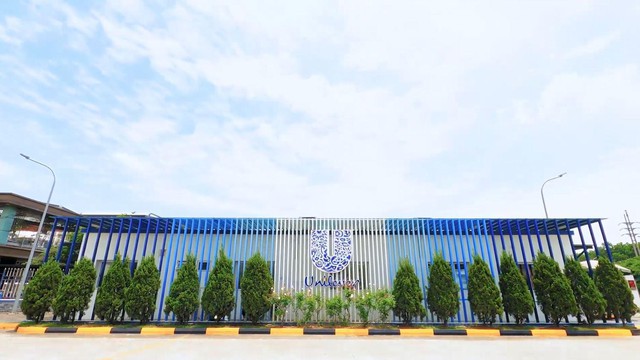
Unilever also regularly organizes training workshops to help its supply chain partners overcome barriers, develop emission reduction roadmaps, and realize Net-Zero in a practical and sustainable manner. During these workshops, businesses gain access to knowledge, tools, technologies, and financial solutions from experts at the Ministry of Industry and Trade and leading entities such as HSBC, the British Standards Institution (BSI), Marshal Green Energy, and Nuoa. This platform enables businesses to chart their green transition paths, encompassing energy transformation, operational optimization, and emission reduction technologies, contributing to the industry’s collective sustainability commitment.
“Unilever Vietnam consistently adheres to international processes, standards, and quality, especially those related to responsible business practices, environmental criteria, and fuel choices when working with suppliers. This empowers our suppliers to confidently engage in international integration, deeply participate in the global value chain, and meet the stringent requirements of developed markets,” affirmed Ms. Hong Nhi.
The Savvy Investor’s Take on Crypto: A Conversation with Sơn Kim Retail’s CIO
“With the evolving landscape of technology, experts believe that the widespread adoption of blockchain applications and digital assets is imminent. As the legal framework surrounding this innovative technology becomes more defined, it is expected that people of all ages, not just the youth, will embrace these advancements.”
“THACO Breaks Ground on Auto-Mechanical Industrial Park in Da Nang, Valued at Nearly 8 Trillion VND”
The THACO Group has embarked on an ambitious expansion project with the commencement of the Chu Lai-Truong Hai Automobile Mechanical Industrial Park expansion. This new development spans an impressive 115 hectares and boasts a total investment of nearly VND 8,000 billion.


